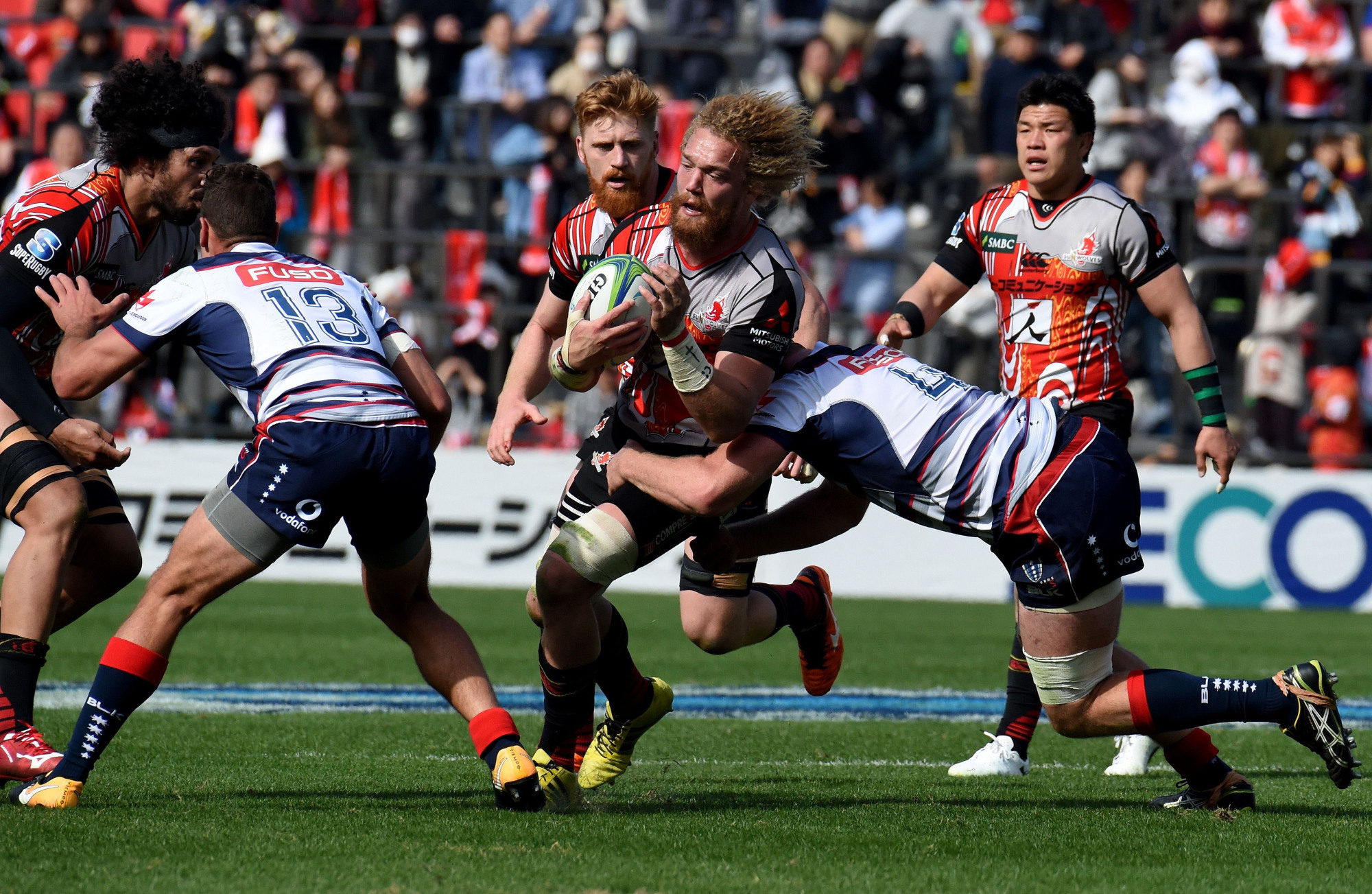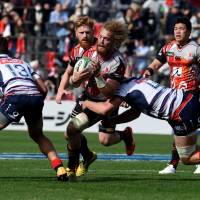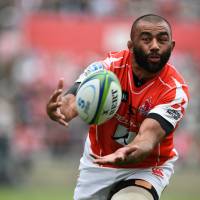I think there have been some amazing developments and some not-so-amazing developments in Japanese rugby since the 2015 Rugby World Cup.
When I look at the young players coming through from university now, their physical development has improved close to 80 percent. Players now are coming through with bodies made for rugby.
I went to Keio University recently and their summer camp — which used to just be one month where they run and play games — had a gym that would be good enough for the England side to use. So that area of more rugby-specific training for younger players at university has improved enormously.
It's the influence of the 2015 World Cup, without a doubt. The players now see that Japanese players can be trained properly, that they can compete at the highest level. The traditional method of just running them into the ground has changed now and they are producing much better rugby players.
I think that's reflected in the young players coming into the national team now. Not only in terms of their bodies, but their attitudes. They now believe they can win, whereas before they didn't believe that. That's very positive.
At the younger age level, there's a growth in the number of players playing. I think again that reflects the success of the World Cup.
What hasn't developed is the Top League. I think it's probably gone backward, with too many foreign players blocking the development of young players. That's a feature of Japanese rugby.
The Japanese Super Rugby team, the Sunwolves, has been partially successful and partially unsuccessful. I don't think it's developed as many young players as you would have liked to have seen.
I think the reason for that is probably the results. They've had to fill the team with foreign players that they believe will give them better results in the short term. That's an opportunity that's been missed, and whether they ever get it again is the $64 million question.
It's difficult, but sometimes you've got to bite the bullet and back what you think is going to give you the most sustainable success. I've got no doubt that the most sustainable success for Japanese rugby is to bring young Japanese players through. Foreign journeymen players aren't going to give you sustainable success.
There is never one person or one organization that is to blame. As we know in Japan, things take time to change. That's part of the culture here. I think also the people in charge have a desire to keep things the same way.
There's a need now to really build on what's happened over the last four or five years. There needs to be almost a mini-revolution now in Japanese rugby.
I don't think the Top League in its present format, plus Super Rugby, works. They need to find a way to make it work because they need both levels of rugby if Japan wants to be a country that plays at the highest level.
I've heard Japan playing at the Rugby Championship being talked about. If that's the aspiration — and that's a fair enough aspiration — you need to have a very competitive domestic league, which is the Top League, and then you need to be competing in the tier between your domestic league and test matches, to give the players the required experience to be successful.
So how you put the Top League and Super Rugby together is the big issue for Japan. Solve that and you can see Japan possibly one day competing in the Rugby Championship.
There's a solution to everything. The Top League teams understand that they need Super Rugby. I think if you spoke to most of the Top League teams individually now, they would understand the need for Super Rugby.
So maybe you could have a shorter domestic season that allows the players to play Super Rugby, and then when Super Rugby is on you have another competition that is developing the next tier of players. There is definitely a solution there. I'm not an administrator so I don't spend too much time thinking about what it is, but there is one there.
In Japan, where social cohesion is so important, there will be a way. But people have to sit around a table and thrash it out. Because if they don't do it now, they'll miss the opportunity.
Eddie Jones is the head coach of England's national rugby team. He coached Japan from 2012-2015.




















With your current subscription plan you can comment on stories. However, before writing your first comment, please create a display name in the Profile section of your subscriber account page.